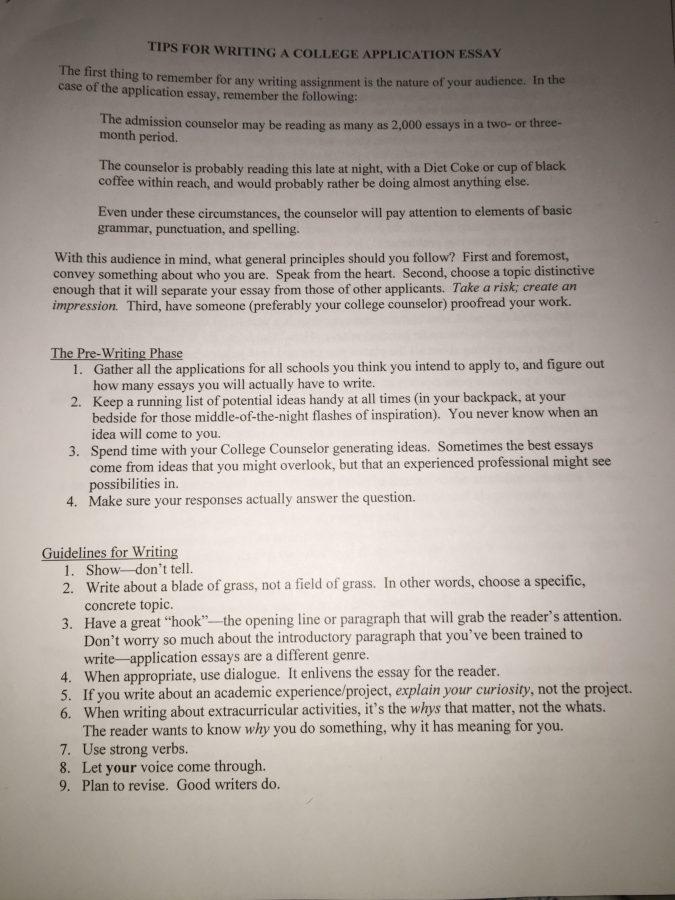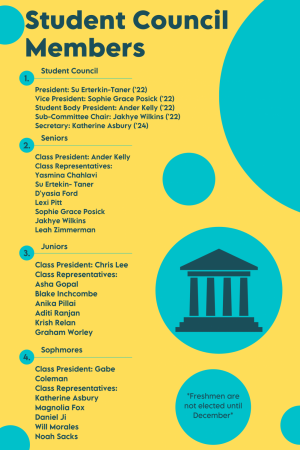Putting a Word Limit on Life – The Mysteries of a College Essay
November 10, 2016
Halloween may be a couple weeks off, but there is something far more terrifying that is making the Seniors quake in fear: college essays. These hulking, hideous beasts are a complete departure from what the average student has to write in their English classes– some sort of abominable Frankenstein’s Monster– making them the hardest part of the college applications– some of which are due on November 1st.
The reason these essays baffle students so is that they require them to write about themselves– not about Frankenstein, or Gatsby, or Odysseus– but about plain old them. There are no sources to cite, no restrictions on passive voice, and no minimum page requirement. One would think that this, in fact, makes it easier to write– nobody knows themselves better than themselves, and 600 or so words is a far cry shorter than the average paper!
Consider one of FSU’s essay questions: “Describe an experience that either demonstrates your character or helped shape it.” On an outside glance, that seems easy to answer– until the true nature of this mental vampire shows itself– the student puts their mind to it and realizes that they have absolutely no idea what to say, drained as they are by its awful power.
The student starts out with nothing to say, and only after they discuss the topics with their college counselor do they know where to start– and normally it will be something that the student never even considered until they simply sat down and talked about it.
According to Ms. Vagenas, college counselor, this is normal, as students are used to English writing rather than personal writing, which is why the college counseling office distributed the life-saving “Tips For Writing a College Application Essay”.
This staple-bound font of knowledge gives tips along the lines of “Write about a blade of grass, not a field of grass,” which means to write about something specific and focused rather than something general; this is why the essay topics normally say “describe an experience” rather than “describe yourself”, as most people find it difficult to talk at length about themselves in a general sense.
To help with writing on specific experiences, some English teachers have started to assign personal narratives to Juniors– smaller writing assignments that are designed similarly to college essays.
Once such teacher is Ms. Clubb, English Department Head, who explains that “the personal narrative assignments help prepare the Juniors for the college admissions process.” The goal is to end with a piece that both demonstrates their writing skills and shares their interests, aspirations, and plans for the future.
If anyone still struggles with the writing, Ms. Clubb recommends to “answer the college prompt, think about their writing voice, and receive feedback,”– and that last part is crucial; if one do not receive feedback on your essay, they will almost assuredly perform far worse than a student who does.
This requirement to get feedback is probably the most important step of all– which is why both Ms. Clubb and the college essay tips highly recommend not waiting until the last minute and getting as much help as possible. This help should be received from one’s college counselor or their English teacher– but probably not the Writer’s Studio.
According to Natasha Pilai, Senior and Tutor in the Writer’s Studio, students usually do not come in to talk about their college essay, and apparently during her time as a tutor, there was only one student that came in for advice. She explains that such students should probably ask their college counselor, as for personal writing, the Writer’s Studio is more for “bouncing ideas off of” rather than critique.
Even before the feedback begins, however, a student must always remember to let their writing voice do the work for them, as it will allow the student’s personality to shine through. Don’t overthink the essay; the colleges are not trying to trick anyone, nor are they actively trying to bar entry to anyone– they simply want to see what kind of person you are.
All this advice may sound threatening to you, but you need only take heed of this last piece of Mrs. Clubb’s advice for the writing process: “Don’t panic.” As long as you give yourself a little bit of time and you talk with your teachers or your college counselors, you will do absolutely fine– and remember that the essays aren’t graded, so there’s that!






